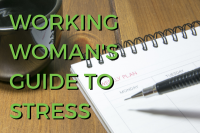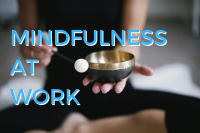Elizabeth Broderick will soon end her eight year tenure in what she describes as her “dream job”, as Australia’s Sex Discrimination Commissioner.
During that period she’s seen some remarkable progress for gender equality in Australia: the introduction of paid parental leave; the right to request flexible work; more women on company boards; new initiatives like the Male Champions of Change; as well as powerful new data on pregnancy discrimination, sexual harassment, women in leadership and the gender pay gap.
So it’s fitting that Broderick should use one of final official appearances in the role to share with others just what she’s learned about addressing injustice, initiating proactive change and rewriting the rules on gender equality.
This week, while addressing more than 400 business leaders at a Centre for Economic Development Australia lunch in Melbourne (a crowd that was notably even in its gender split), she shared the nine things she’s learnt about accelerating change in Australia. From the first day in her job as Commissioner, she said she knew she had to take a strategic approach, rather than simply spending the time reacting to things like inappropriate and inopportune gender comments.
To establish her blueprint for change in 2008, she spent months on a ‘listening tour’ learning about the lived experience of personal hardship and inequality. It was a chance to hear from Australiam men and women on how they’ve personally been impacted by gender inequality, and to then establish a set of key priorities for change.
The nine things she shared on initiating change are below:
1. Have influence. You don’t have to be extraordinary to have influence, and Broderick believes she provides a great example of that. Do what you can, when you can.
2. Know the power of collaboration. Changing the world doesn’t happen alone. Broderick realised this early on when she realised that to advocate for a paid parental leave scheme, she’d need to enlist the support of others. She got in touch with Sharan Burrow, head of the union movement, and Heather Ridout, head of the Australian Industry Group, and the three found common ground. They published a joint opinion piece on the issue and proved differences could be put aside to support change. “Strong partnerships have been key to making progress over the years,” said Broderick.
3. Remember intersectional discrimination. Not all women start from the same position. We’re not a homogenous group, just like men aren’t. Broderick believes we must therefore be weary of averages, and of presenting a uniform picture or proposing a one-sized-fits-all solution. “The fact is that certain groups of women represent the minority of the minority, and inequality will affect those to a much greater degree.”
4. Actively and intentionally include women. If you don’t actively and intentionally include women, then the system will unintentionally exclude them. “Pouring in a few women and stirring is never going to be the solution,” said Broderick. “The fact is that we need some form of systemic intervention. Nearly every organisation in this nation is deeply rooted in a male way of being.” That means we need to change the very systems and structures we’re working in.
5. The data by itself is never enough. Progress begins by taking the case for change from the heads to the hearts of those with power, using individual stories that spark a commitment to take action. This means you need to operate on a number of levels: by first being part of systemic change and reform; and by then valuing acts which correct injustice. “It’s right and necessary to hold your compassionate self with your strategic self,” said Broderick. “You can’t be overwhelmed by the sadness and powerlessness you feel on hearing the stories of others.”
6. Identify where power resides, and then take the personal to its heart. Create avenues for those who’re ‘included’ — particularly those with power — to hear the stories of those who’re excluded. It will be terrifying for both parties involved, but will prompt those with power to change the system. “Inclusion is not something that can be applied from outside. Inclusion must be grown from within,” she said.
7. Know the importance of women’s voices. Women’s voices must elevate, said Broderick. As the Liberia Peace Activist Leymah Gbowee says, there can be no legitimate conversation without the voices of women. Broderick also recalled Australian of the Year Rosie Batty’s comment, who said that prior to her son Luke’s death, no one wanted to hear her story of living with violence, and now everybody does. “So one of the most significant contributions we can make is to give voice to those who have been silenced, to tell the individual stories that make the broader issue mean something more than just the data,” said Broderick.
8. Persistence. Change takes persistence, particularly as not all progress has a watershed moment. Change comes via small, intentional steps. “Shaping a more gender equal world is a journey characterised by persistence. It’s a long and often winding road. To have influence and to create momentum, I have to have a strong belief in myself in finding and maintaining courage,” she said.”
9. See the world from other perspectives. Those speaking out for change will experience personal attacks, but such attacks must be ignored because they stem from a fear of change. Respond to such attacks (or opinions) with patience, said Broderick, and navigate hostile situations with compassion. She believes too many experts go into organisations wanting to change everything before understanding what the individuals within the organisation have already invested in what’s there.
Broderick is optimistic for the future, but said there’s still plenty of work to do. The stats offer an overview of all the personal stories of hardship that continue: two women a week are being murdered by an intimate partner, women are still responsible for up to 70% of the unpaid caring work, the gender pay gap is growing, and one in four women report they’ve been sexually harassed in their workplaces in the last five years.
But we can’t be overwhelmed. “When it comes to gender inequality, like anything that’s worth doing, think big, think creatively and rewrite the rules,” said Broderick.
This article was originally published on Women’s Agenda 7th August 2015. Read the original article here.









Leave A Comment